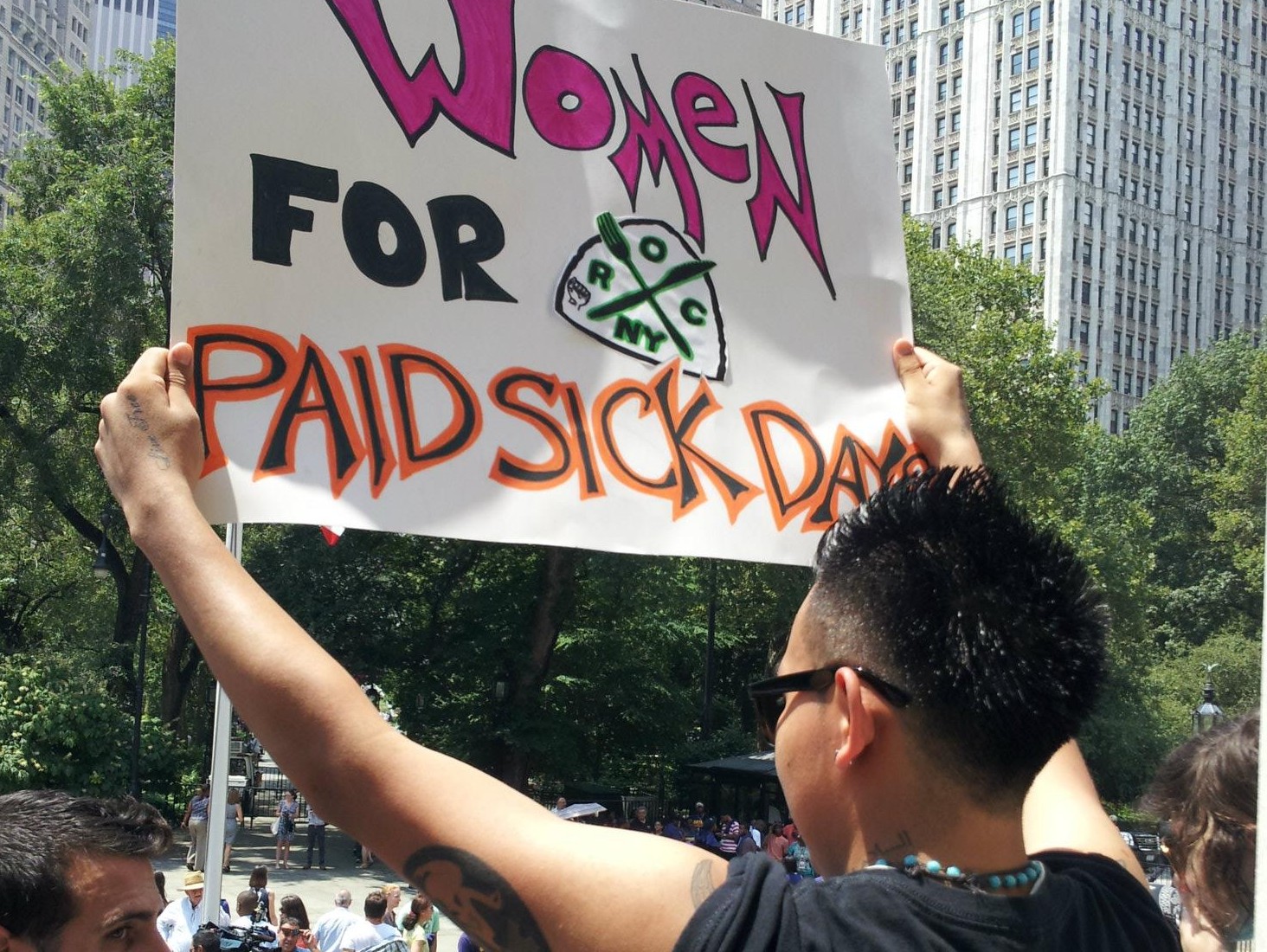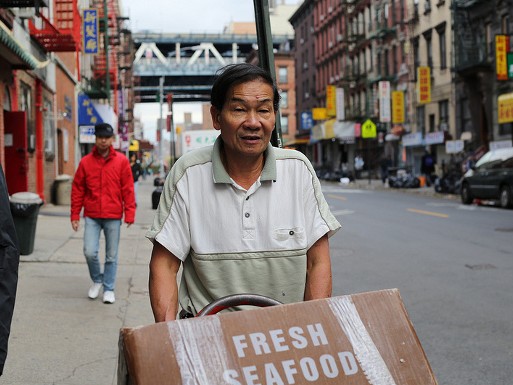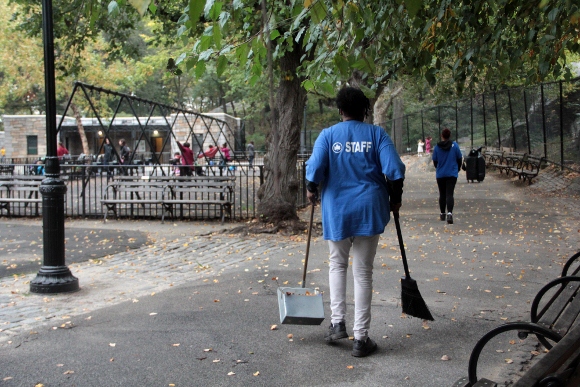For their health and yours, restaurant workers demand paid sick days.

August 24, 2012
That fine meal you had last night may have come with an unsavory hidden cost: The cook who chopped your salad might have been battling pneumonia, or your busboy might have nearly fainted as he cleared your table. Because in many of the city’s restaurants, from your average greasy spoon to the toniest bistro, workers are coming in sick because they’re just one cold away from losing their job.
Restaurant Opportunities Center United, an advocacy group for restaurant workers, has been pressing local lawmakers to give the city’s legions of cooks, servers, dishwashers, and hostesses a very modest benefit: the ability to stay home if they fall ill, or need to care for a sick family member, without losing a day’s wages.
Unlike many other rich industrialized nations, the United States has uniquely regressive paid leave protections for workers who experience a personal or family medical problem. According to the National Partnership for Women & Families, an estimated 40 million American workers don’t have any paid sick days.
This gap in labor policy is a particularly acute problem for the New Yorkers who prepare and serve food—many of whom are low-income people of color and immigrants. For workers who are simply too sick to work, taking even a day off can cut deeply into wages that are already abysmally low; for those who drag themselves to work, the health risks rise and extend to the entire staff and the customers. ROC’s research shows the unsavory consequences of this dilemma: “Almost 90 percent of all restaurant workers don’t have a single paid sick day to recover from common, short?term illnesses, and two-thirds report cooking, preparing, and serving food while sick.” Other research suggests that “Nearly one in five restaurant workers came to work ill with vomiting or diarrhea at least once in the past year.”
This is clearly a cross-cutting issue for both workers and consumers, since your server doesn’t want to bring you salad that’s been sneezed on, any more than you want to eat it.
In New York City, legislation for paid sick days has become a rallying point for community groups and has strong majority support in the City Council. But it’s been stalled by Speaker Christine Quinn, who argues that the initiative could cut too deeply into businesses’ bottom line.
Opponents say Quinn is parroting the line of the restaurant lobby, especially in light of studies showing that paid sick leave actually saves health care costs in the long run and improves worker productivity. Besides, the bill is hardly a free vacation: It would enable eligible workers to earn leave time based on the number of hours worked in a year, allowing up to five or nine paid sick days annually, depending on the size of the business (smaller firms with five to 19 workers would have lower requirements).
The campaign for paid sick days is intensifying. A recent rally at City Hall featured ROC activists, unions, community groups, and an endorsement from Quinn crony Gloria Steinem. And this week, labor activists held a solemn vigil for a worker who died of cancer reportedly after being denied paid time off for health care. But common sense tends not to prevail in debates overshadowed by towering corporate influence. (Restaurant workers are also battling the industry in a parallel campaign to raise the minimum wage for tipped workers, which has remained an anemic $2.13 per hour for about two decades.)
Teo Reyes, National Research and Policy Coordinator for ROC-United, said that while paid sick leave bills have passed in some places, including San Francisco and Washington, DC, the industry, particularly the lobby group National Restaurant Association (NRA), has lobbied fiercely against various paid sick leave proposals on the local and federal level.
“The NRA has a chicken little approach to any policy initiative. ([The industry thinks] any change will destroy the industry, from anti smoking laws to paid sick days.) We’ve obtained majorities of legislative bodies, and then need to obtain veto proof majorities. It has been a slow but constant process of building political power. [Paid sick days policy] has overwhelming majority support among the public independent of political affiliation.”
To help grease through the stagnant City Council bill, ROC has gathered personal stories of restaurant workers who have been pressured to trade their health for a paycheck.
In one testimonial, Ai Elo, a young woman who is supporting her family with restaurant work, recalled her boss dismissing her pleas for time off:
Soon after collapsing at work due to my knee injury, a family emergency arose, and I was forced to ask my boss for some time off so I could take care of my sibling. When I asked for a few days of leave, my boss told me flat-out: if you go, don’t bother coming back. Because the well-being of my sibling was at risk, I couldn’t, this time, work through the sickness as I had previously done. I had to prioritize my family over work, and I lost my job as a result.
Juan Carlos, a busboy, testified about his employer’s reaction to his strep throat:
I was really tired, my body was sore, I could barely carry anything, I was sweating, but still trying to serve food until it came to the point when my body just gave up. It was really sad because the management didn’t really consider for one second my body or my well being—they just wanted me to keep working and to push myself literally to the limit. It was really dangerous because I was on the verge of passing out. It was really hard for me. But it’s the kind of culture that the industry puts out there. It’s inhumane.
A law to provide paid sick days wouldn’t fix that culture of labor exploitation. But it would draw an ethical line in a profit-hungry industry: No matter how much you cough up for a nice meal, it shouldn’t come at the cost of anyone’s health.



